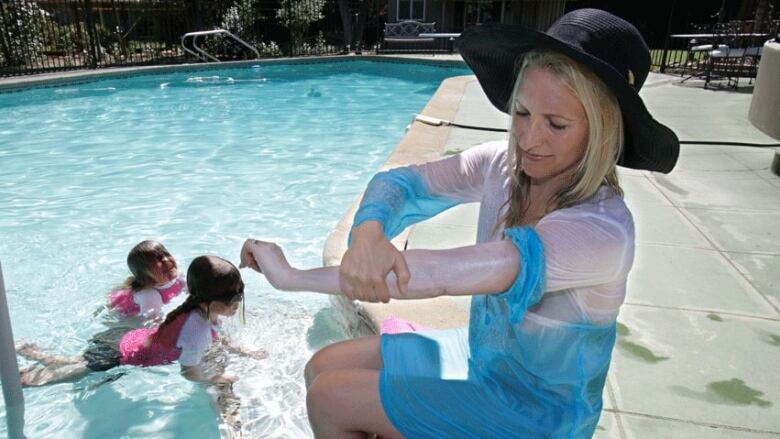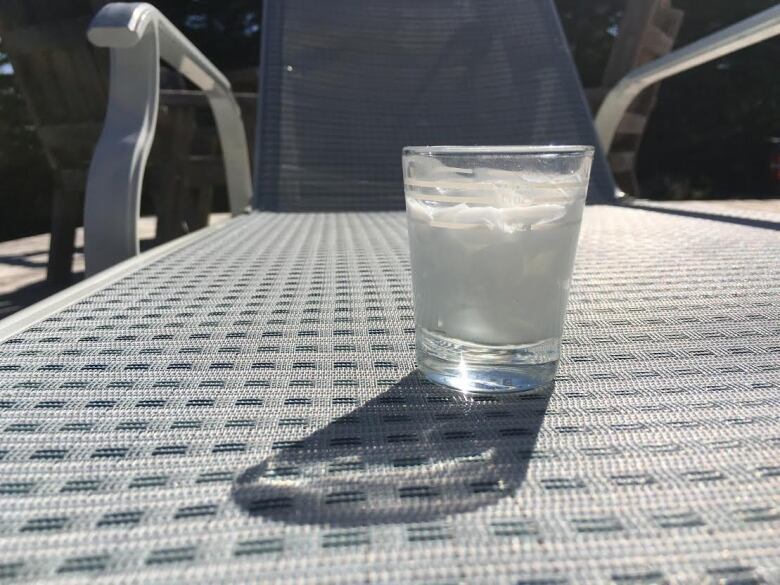8 ways to improve your sunscreen game
'Studies show that people apply only half the recommended quantity of sunscreen'

Sunscreen season is here, along with some stunning news: you may not be using it right. And everyone should be, especially Islanders.
Here's why, in a nutshell: one in every 3 cancers diagnosed worldwide is a skin cancer. At least one in seven Canadians will develop skin cancer during their lifetime. P.E.I. has the highest rates of melanoma in the country, and Island men in particular are at risk twice as many get melanoma as the national average. Yikes.
"Being in the sun often can lead to skin cancer over time, even if you don't get sunburned," reveals Dr. Catherine Rodriguez, who is P.E.I.'s only dermatologist.
She offered some advice on how we can all up our sunscreen game and prevent skin cancer.
1. Use more
"Studies show that people apply only half the recommended quantity of sunscreen," said Dr. Rodriguez.

"The recommended quantity for covering an adult wearing a bathing suit is one ounce or 2 tablespoons," she said. Not sure what that looks like? It's a shot-glass full.
If sunscreen isn't applied generously, you won't get the intended effect, and you could get as little as a quarter to a half of the labeled SPF that's Sun Protection Factor she notes.
2. Use daily
Sun exposure occurs all day long, through cloudsandthrough regular glass windows of our homes and cars said Rodriguez. She advises using sunscreen year-round no matter what the weather.
3. Apply earlier
Apply sunscreen 15 to 30 minutes before going outside.
4. Apply more often
Reapply sunscreen every twohours.

Even if sunscreen is advertised as waterproof, always reapply after swimming or sweating as water and sweat wash it away, said Dr. Rodriguez.
5. Make-up is not enough
If you are spending any amount of time outdoors, you will never apply enough makeup to give you adequate sun coverage, even if your makeup contains sunscreen. Dr. Rodriguez advises putting on sunscreen before your makeup routine.

6. Use creams, not spray
Lotions, creams and gels protect you better than sprays, Rodriguez said. Most people don't use enough spray to give them the SPF stated on the can.
7. Use higher SPF
Use sunscreen with a minimum SPF of at least 30, said Dr. Rodriguez, and SPF 40 to 50 if your skin is fair.

However, Rodriguez said after SPF 50, "higher values are not significant and give a false sense of security to individuals who may misuse them, i.e. may not apply as much or re-apply as recommended."
Also, make sure the label says broad spectrum, to protect against both UVA and UVB rays.
8. Don't forget your eyes and lips
Wear sunglasses and apply an SPF 30 lip balm.
"Since sun damage is cumulative, it is never too late to start!" trying to improve your sunscreen habits, notes Dr. Rodriguez.

She also advises you check your skin for signs of skin cancer at least once every 6 months, using a hand mirror to check places that you can't see easily.
During summer just five minutes of daily sun exposure of limited areas of skin say, on your face, hands and arms will supply ample vitamin D for the body's needs. Most people will receive this amount of sun exposure while performing routine activities, even if they are sun-safe.












_(720p).jpg)


 OFFICIAL HD MUSIC VIDEO.jpg)
.jpg)



























































































